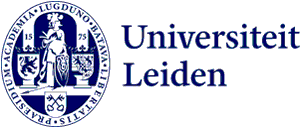Conference
Symposium on Ukraine in images, words and sounds
- Date
- Friday 11 March 2022
- Time
- Address
-
Lipsius
Cleveringaplaats 1
2311 BD Leiden - Room
- 005 (also available online, link at the bottom of the page)
At the moment, it appears that mainly the geopolitical and military interpretations of the war in Ukraine are taking the foreground, but the cultural, historical and linguistic backgrounds to this crisis are just as important. The aim of this symposium is to emphasize the importance of explanation and reflection from the viewpoint of the humanities.
Everyone is welcome.
Missed the symposium or want to rewatch it? Watch the recording on our YouTube channel
Watch the recording on YouTubeProgramme
The programme is made up of two films and two themed panels. The main programme will be presented in Dutch, with one English contribution. However, the films have English subtitles. Attendees are encouraged to ask questions in either English or Dutch.
| 12.00 – 12.20 | Otto Boele – By way of introduction. Ukrainian poetic cinema. |
| 12.25 – 14.00 |
Film 1 – Serhii Parajanov – Тіні забутих предків / Shadows of Forgotten Ancestors (1965).
Visually overwhelming love story set among the Hutsuls, highlanders in the Carpathian Mountains. The film is a classic of the Thaw and, in particular, of Ukraine’s poetic cinema. |
| 14.00 – 14.30 | Coffee and tea |
Panel I: Literature and music
| 14.30 – 14.50 | Dorine Schellens – War in literature: Lisa Weeda’s family history Aleksandra (2021) |
| 14.50 – 15.10 | Patrick Norén – Making SHUM: Music Revivalism and Restorative. Nostalgia in Ukraine Since Euromaidan |
| 15.10 – 15.30 | Questions and discussion |
Panel II: Linguistic and historical perspectives
| 15.30 – 15.50 | Egbert Fortuin – Russian and Ukrainian in the light of the war in Ukraine |
| 15.50 – 16.10 | Hans Wilbrink – Loaded history: Disinformation in a historical perspective |
| 16.10 – 16.30 | Questions and discussion |
| 16.40 – 18.30 |
Film 2: Valentyn Vasyanovych – Atlantis (2019).
|
Further explanation of the programme
By way of introduction. Ukrainian poetic cinema
Otto Boele (Russian and Eurasian Studies/LUCAS)
With great names such as Aleksandr Dovzjenko, Joeri Illenko and Serhii Parajanov, Ukrainian poetic cinema has become a common concept in the history of Soviet films. What makes it ‘poetic’? And what makes these film typically Ukrainian? This introduction aims to offer a preliminary answer.
The war in literature: Lisa Weeda’s family history Aleksandra (2021)
Dorine Schellens (International Studies/German Language and Culture/LUCAS)
How has literature contributed to the formation of understanding surrounding the state of war in Ukraine since 2014? What narratives and interpretations do the authors offer us? The continuing of war violence is the subject of many literary works by Ukrainian authors such as Serhiy Zhadan, Andrey Kurkov and Ilja Kaminsky. In this contribution, we look at the debut novel Aleksandra (2021) by Dutch-Ukrainian author Lisa Weeda (1989), which was nominated for the 2022 Libris Literature Prize. In the book, Lisa, the alter ego of the author, secretly crosses the border at Loegansk, looking for the grave of her disappeared uncle Kolja. During her journey, she reflects on the past and interweaves the fate of her own family members with the history of the Donbas in the 20th and early 21st century.
Making SHUM: Music Revivalism and Restorative Nostalgia in Ukraine Since Euromaidan
Patrick Norén (MA Student Russian and Eurasian Studies)
The paper discusses how Ukrainian musicians have looked to the past for musical inspiration, utilising traditional instruments and pointed lyrics to create an updated sense of Ukrainianness that is relevant and legitimate in the 21st century.
Russian and Ukrainian in the light of the war in Ukraine
Egbert Fortuin (Russian and Eurasian Studies/LUCL)
For Russia, one of the arguments for the war against Ukraine is the supposed oppression of the Russian-speaking people of Ukraine. Lavrov, Russia’s Minister of Foreign Affairs, stated that speaking Russian in Ukraine can be a death sentence. At the same time, President Zelensky of Ukraine himself is a Russian-speaking Ukrainian. What is the real situation of the Russian language in Ukraine? Who speaks Russian or Ukrainian and where do they speak it? What is Ukraine’s language policy? What is the truth of the Russian state's claims that the Russian language and speakers of Russian are oppressed? And what is the future of Ukrainian now that a bloody war has broken out in the country?
Loaded history: disinformation in a historical perspective
Hans Wilbrink (International Studies/LUIH)
The war is being fought on many fronts, one of which receives special attention from Putin: the past. The historical right of Ukraine to exist has been denied and the denazification of the Ukrainian state is considered a major goal of the war. History is a commonly used weapon, one that appears in many guises such as disinformation, propaganda and distortion. Which historical truths play a role in this conflict? What analogies are being used, and how effective is this approach? What kind of history is Putin writing currently? This contribution focuses on how such a fraught history has now become a loaded one.
